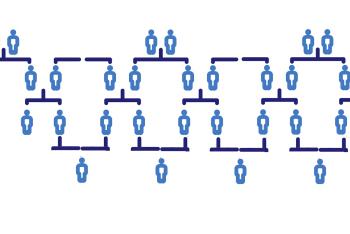Intuitive’s Ion bronchoscopy system is a robotic platform that could allow for earlier lung cancer...
Read More

Lung cancer is the leading cause of cancer death in the United States. It is considered a silent killer because symptoms typically don’t appear until after the cancer has spread—and when it is far more difficult to treat.
Here's how you can maintain your lung health, starting with understanding the new lung cancer screening guidelines set by the U.S. Preventive Services Task Force (USPSTF).
Screening for lung cancer involves a low-dose CT scan to look for any abnormalities or lung nodules. Doctors determine who should be screened based upon your age and pack-year history—the average number of cigarette packs smoked per day multiplied by the number of years as a smoker.
Today, the USPSTF recommends lung cancer screening for adults between 50 and 80 years of age with a 20 pack-year smoking history, even if they have quit within the last 15 years. This differs from the 2013 screening recommendations for adults between 55 and 80 years of age with a 30 pack-year smoking history.
“It’s been proven that this low-dose CT scan can save lives,” said Charles Shieh, M.D., a thoracic surgeon at Inspira Health. “The screening guidelines have been expanded because of the test’s effectiveness.
Now, more patients will be eligible, which means we have a better chance of catching and treating lung
cancer early and reducing mortality rates.”
Lung cancer is frequently diagnosed only when it begins to cause physical symptoms. Knowing your risk profile and getting screened, if eligible, can help to diagnose and treat lung cancer before it’s too late.
You are considered high-risk for lung cancer and may be eligible for earlier screening if you meet all these requirements:
“The new recommendations come with a new hope that lung cancer screenings will be available to other high-risk patients that may not have been eligible for screening previously,” said Dr. Shieh.
Inspira offers free low-dose CT scans through a grant-funded program for eligible patients. With a prescription, Inspira also offers a self-pay option of $125 for high-risk patients who do not qualify for insurance or grant coverage.
Eighty-five percent of lung cancer deaths are directly linked to smoking. If you or someone you know is having difficulty quitting their smoking habits, the first step is to ask for help.
“Your body starts to heal the second you smoke your last cigarette. In 20 minutes, your blood pressure normalizes and in 8 hours, your carbon monoxide levels stabilize. Imagine what happens to your body and how much your risk of developing other life-threatening conditions drops in the days, weeks and months after you quit,” said Dr. Shieh.
Nicotine addiction is not something to feel ashamed of; it’s something to remove from your life—and you don’t have to do it alone. “In addition to offering lung cancer screenings, Inspira’s Quit Center offers a variety of free smoking cessation tools such as provider-assisted programming, one-on-one counseling, nicotine replacement therapy and treatment specialists,” said Dr. Shieh. “These services are proven to dramatically increase your chances at successfully quitting nicotine.”
For more information, visit InspiraHealthNetwork.org

Intuitive’s Ion bronchoscopy system is a robotic platform that could allow for earlier lung cancer...
Read More
For 81-year-old artist Bonnie Flanagan, an overall assessment of her health, which included a self...
Read More
Uncover the hidden connections between your family's past and your future well-being as we delve...
Read More
The material set forth in this site in no way seeks to diagnose or treat illness or to serve as a substitute for professional medical care. Please speak with your health care provider if you have a health concern or if you are considering adopting any exercise program or dietary guidelines. For permission to reprint any portion of this website or to be removed from a notification list, please contact us at (856) 537-6772